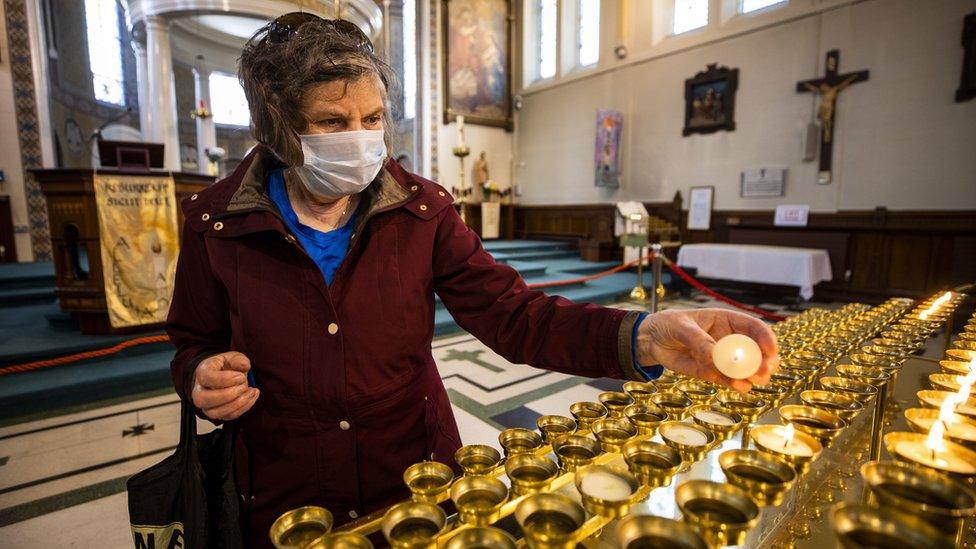Coronavirus: How will places of worship change after lockdown?
- Published
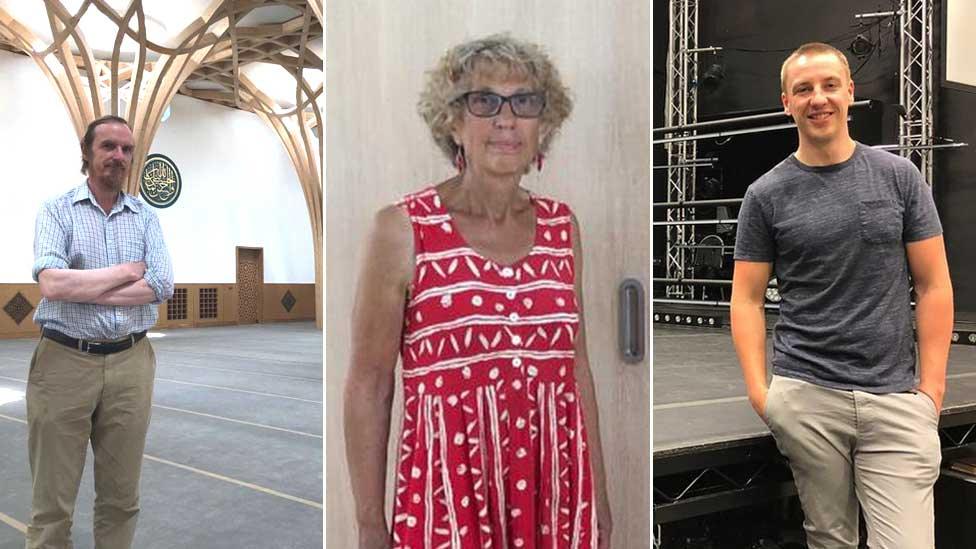
Three different places of worship in Cambridge are preparing to reopen
Places of worship will be able to reopen to congregations from 4 July but what will they look like - and how will they be different? BBC News visited a mosque, church and synagogue in Cambridge to find out.
The congregations might be set for a return - but hand-shaking, hugs and hymns will all be absent.
Since lockdown took hold in March, the major religious festivals of Easter, Passover and Eid have all been and gone.
Celebrated - not in beautiful, sacred buildings - but live streamed into living rooms.
'The mosque is a spiritual hospital'
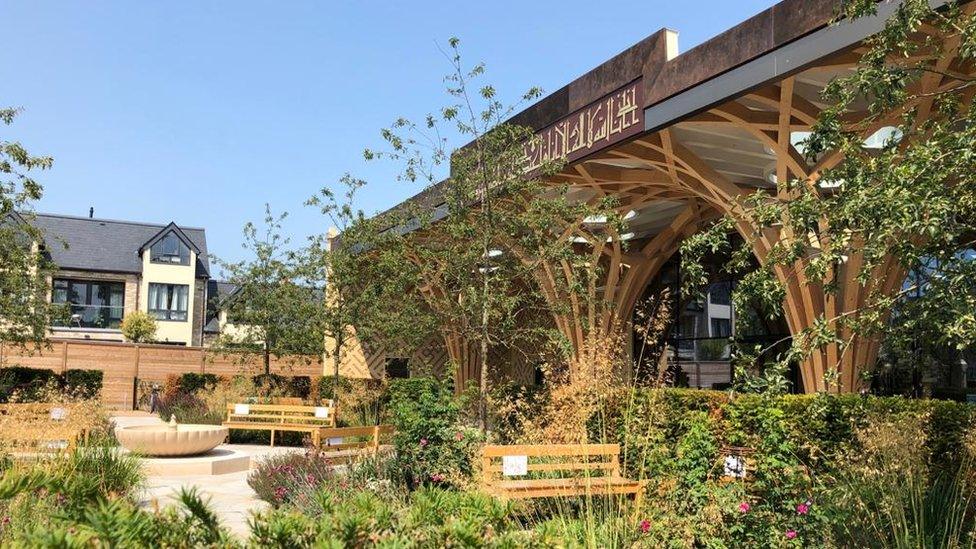
Cambridge Central Mosque: "You feel at home when you come back"
"Lockdown has been an uncanny experience," said Abdal Hakim Murad, of the Cambridge Central Mosque.
Completed in May 2019, this elaborate feat of architecture welcomes worshippers from across the religious spectrum who step inside for solace and prayer.
Dr Murad said the closure had been "disorientating and distressing" to many.
"Muslims tend to be creatures of habit, our forms of worship have never changed, so we were somewhat wrong-footed.
"We have a large, traditional community, and for older members it has been a social as well as a religious hub. We are like a spiritual hospital.
"It has become a digital place of worship - from a parish mosque to a global one."
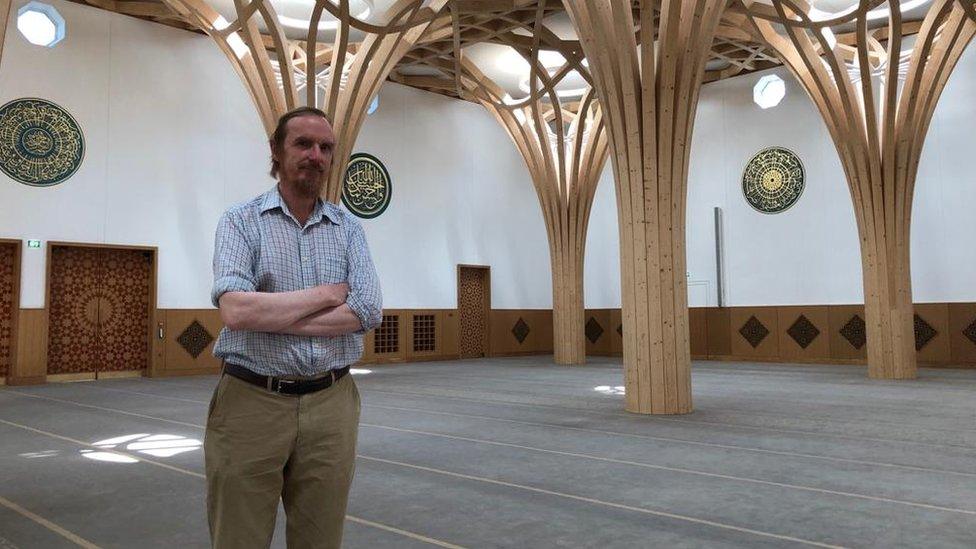
Abdal Hakim Murad: "The mosque has become a digital place of worship"

The mosque on Mill Road is a social as well as a religious hub
"Cambridge is a very unequal place - there is real poverty here," Dr Murad said.
"The number of people in distress, socially, economically and spiritually, has gone up.
"Sermons and conversions - even weddings - have taken place online. We've had more hits from overseas than Romsey Town in Cambridge."
Things will look a little different when it reopens in 10 days' time.
Linoleum prayer mats will be placed out for individuals, with numbers limited on entry. Dr Murad expects about 20% capacity.
"Muslim worship is famously shoulder-to-shoulder, foreheads together on the carpet, ablutions," he said.
"We don't want to be another node of propagation for this virus.
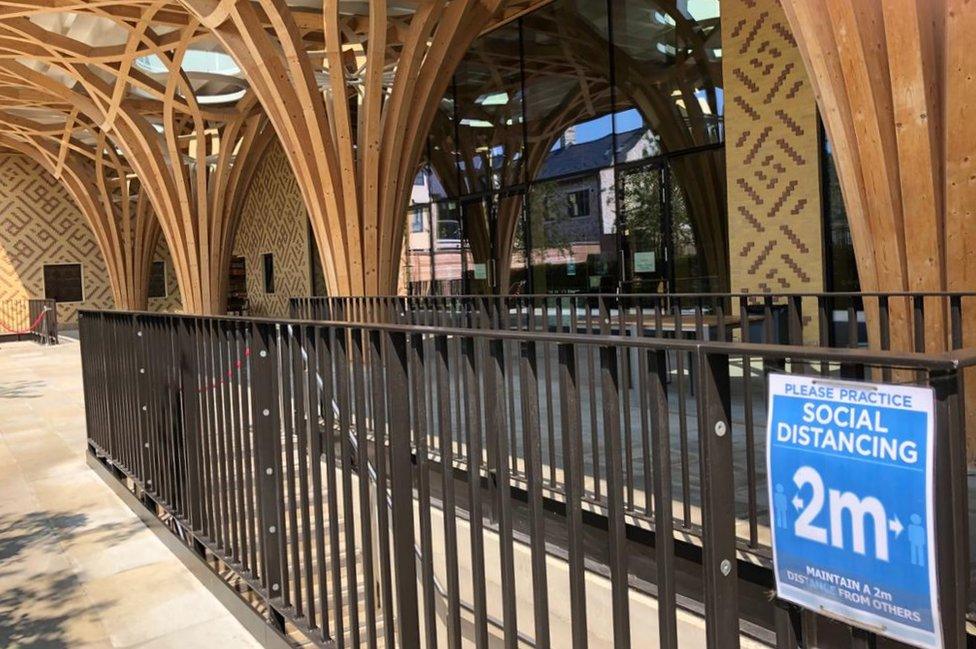
The first Friday Prayers at Cambridge Central Mosque will be "like a pilot"
"But people have become less materialistic, they think about death more, the eternal verities. They want religion more than they did," he said.
"We need each other."
'God opened a door for us'
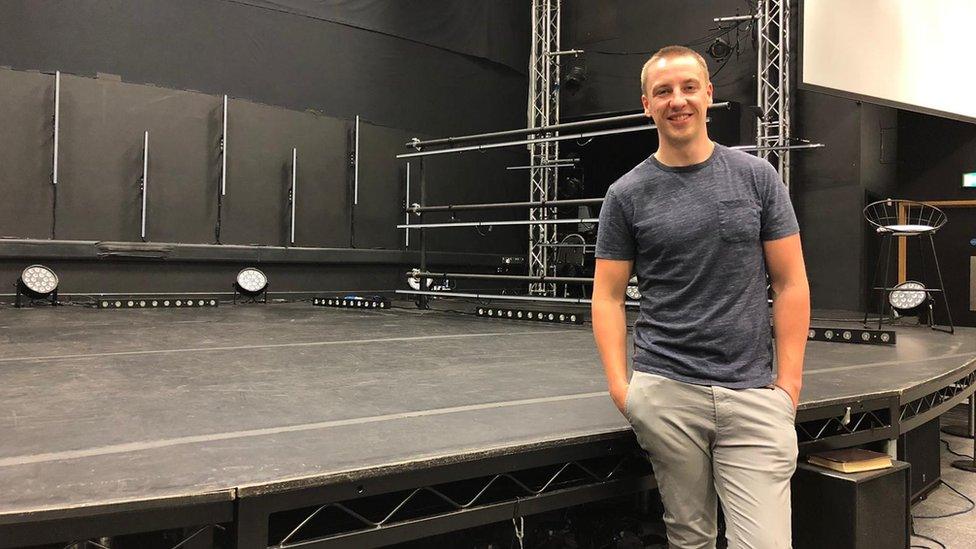
Jamie Bambrick: "We've really seen the church unify"
Two minutes around the corner is the new C3 Church on Brooks Road, a vibrant, Evangelical place of worship.
Jamie Bambrick said staff and volunteers had pulled together to provide support in the community and a new online presence - known as "care and content".
But not being able to sing will present a significant challenge. Singing is banned because of fears it could cause infected droplets from people's mouths to remain in the air for longer - and travel further.
"It will be strange, it's not like we can hum," he said.
"Worship with music is a big element of our church service experience. We'll have to play it - and make it a reflective moment."
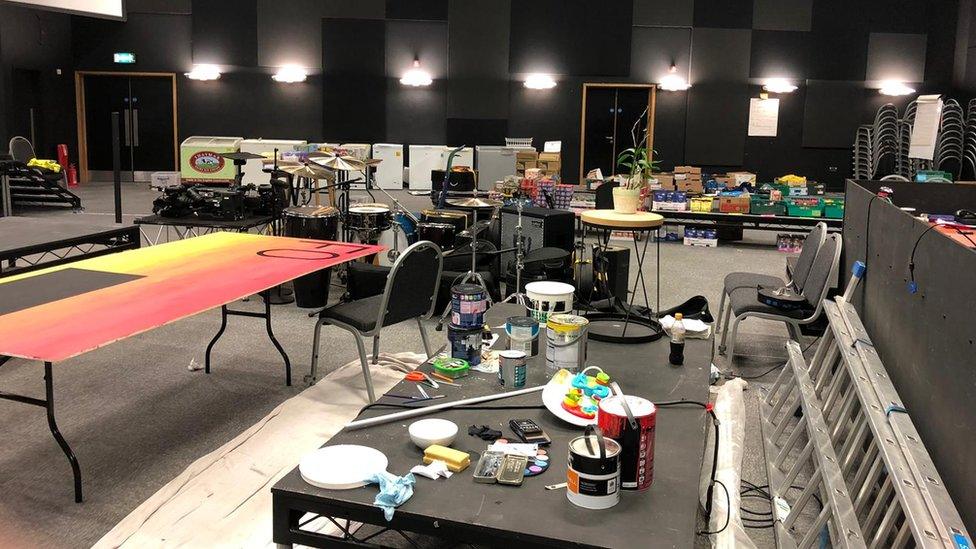
The C3 Church auditorium is curently a food distribution centre and studio
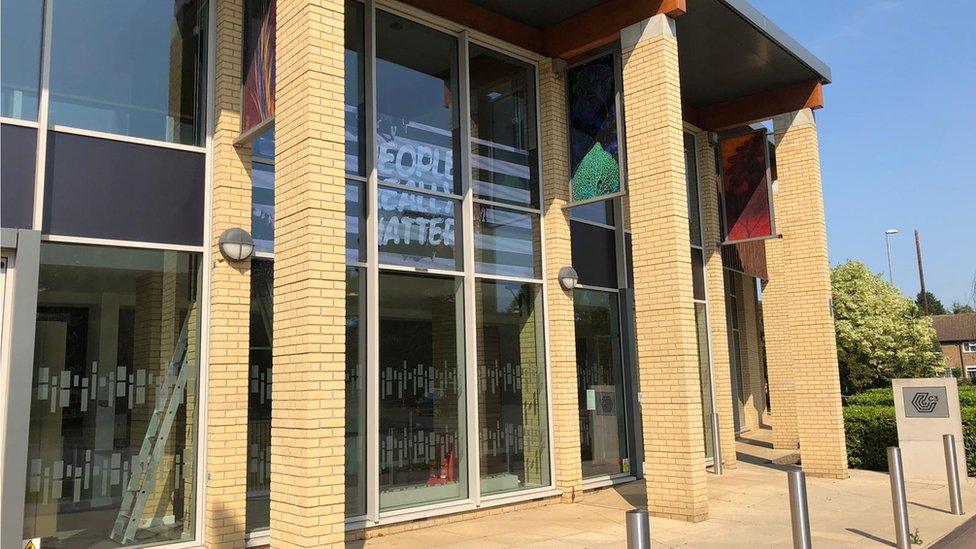
C3 Church: "It hasn't all been sunshine and lollipops"
Since lockdown, C3 has given out more than 35,000 meals, and established online courses in mental health and bereavement.
The congregation raised more than £100,000 and coupled with a government grant, it hopes to keep the food donations going.
Mr Bambrick said they had seen the usual 1,100-strong weekend attendance double online.
"We've also been broadcasting into prisons - 46,000 inmates have been able to tune in. That's an opportunity we would never have had without putting everything online.
"God opened that door for us."
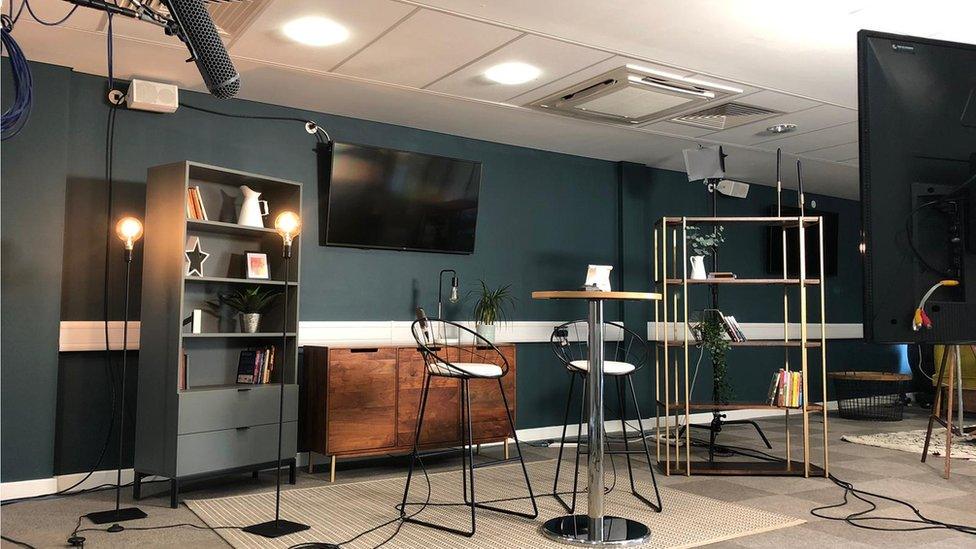
The church has been live streaming services, devotions - and online courses
A date for reopening for services has not been set, but when it does, the church will establish a free ticket service to limit numbers - and install a one-way flow.
"We understand many may not want to come back initially," Mr Bambrick said.
"We've seen the church unify in a remarkable way.
"It hasn't all been sunshine and lollipops. But there is something about having a trust in God in times like this."
'It wouldn't be right if people didn't feel safe'
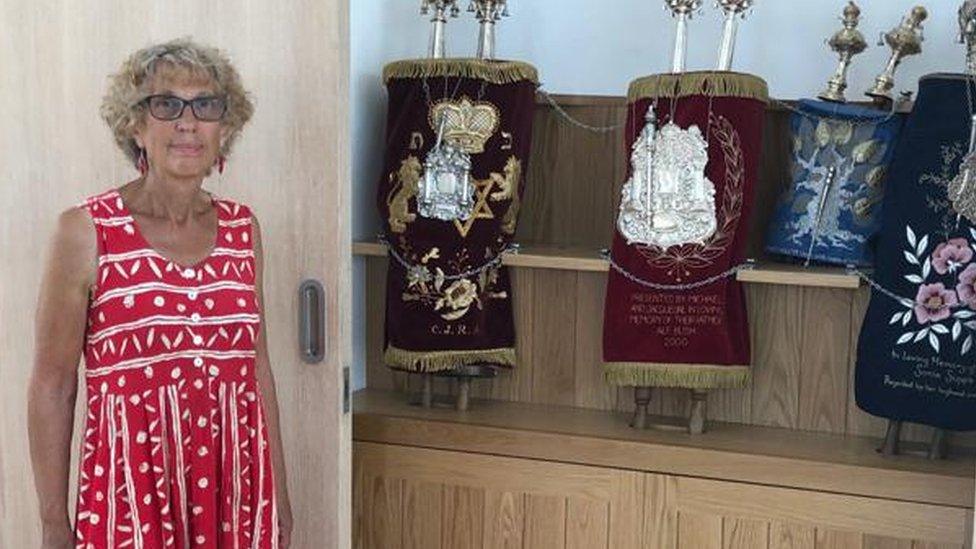
Sheila Levy: "We want people to feel safe"
Built in 2015, the Beth Shalom Reform Synagogue in Cambridge is nestled in a quiet residential street, in view of the grazing cattle on Midsummer Common.
It has an immaculate prayer hall that can fit 200 people.
"We closed in mid-March, and since then we've been 'Zooming' services," said Sheila Levy, of the Beth Shalom Council.
"It's worked very nicely in some ways because people who used to be members and now live anywhere in the world have been joining us - as well as people who can't always get here on a Saturday morning.
"We have one ex-member in the States who gets up in the middle of the night for the Shabbat service and we can watch the dawn breaking in America behind her."

The Beth Shalom Reform synagogue was built in 2015 and until lockdown held up to 200 worshippers
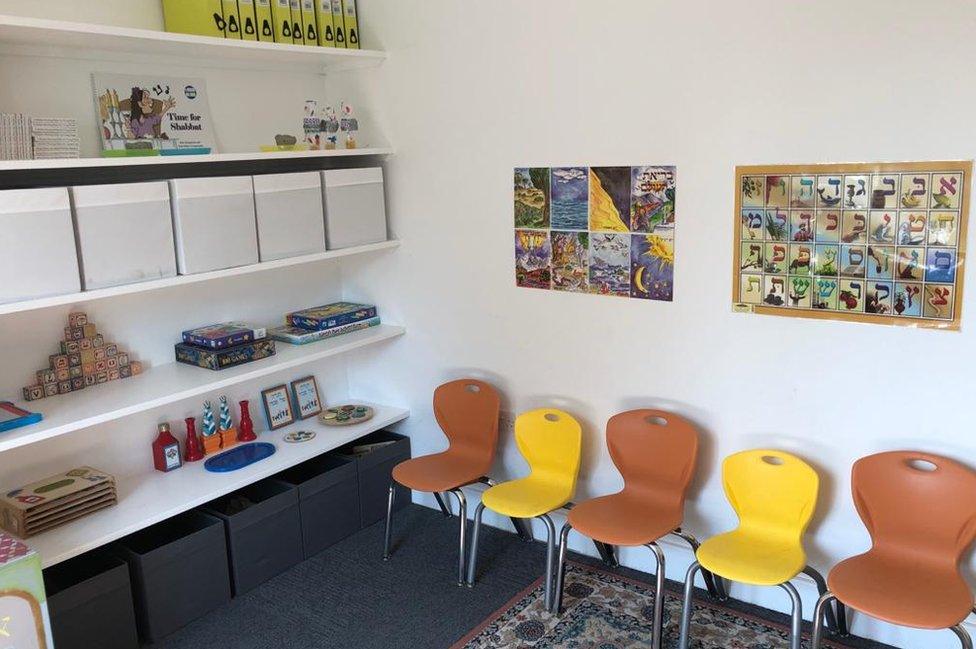
All in order: the Beth Shalom Reform synagogue's children's room
Volunteers have created a welfare committee to support vulnerable people, and social distancing precautions will continue, especially for the High Holy Days of New Year and Yom Kippur.
"A lot of our community are over 60 and are not comfortable coming back at the moment," Ms Levy added.
"Not seeing people face to face has been difficult, but it's brought us together in many ways too.
"It wouldn't be right if people don't feel safe to come back. We're looking at streaming services.
"It will be sad not to use this beautiful building to its full capacity."
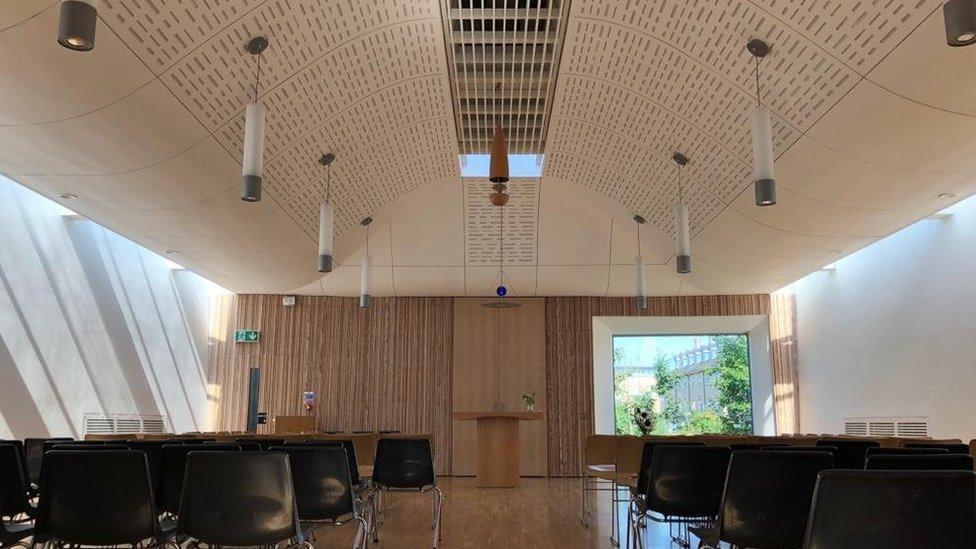
The synagogue has been closed since mid-March but people have been joining its online services from around the world

A SIMPLE GUIDE: How do I protect myself?
RECOVERY: How long does it take?
LOCKDOWN: How can we lift restrictions?
ENDGAME: How do we get out of this mess?


Find BBC News: East of England on Facebook, external, Instagram, external and Twitter, external. If you have a story suggestion email eastofenglandnews@bbc.co.uk, external
- Published23 June 2020
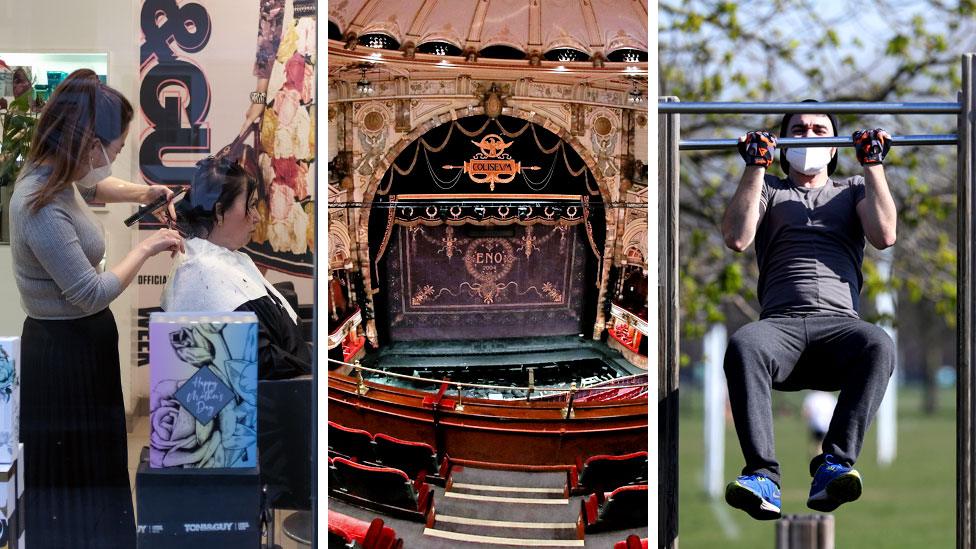
- Published7 June 2020
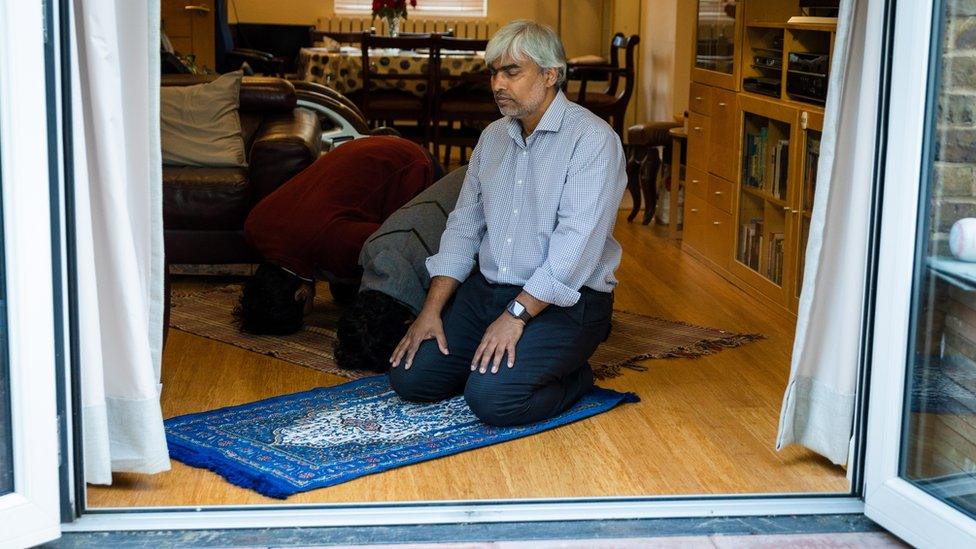
- Published7 June 2020
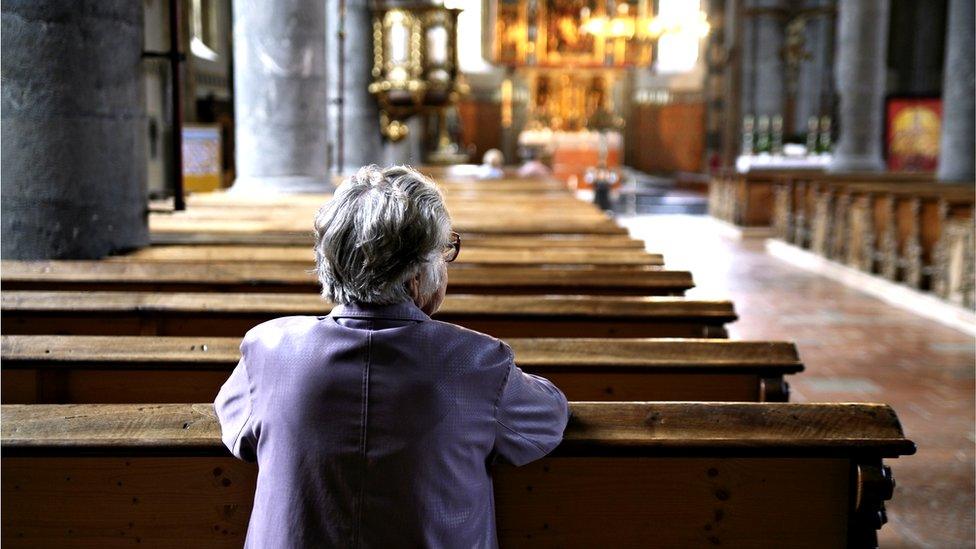
- Published1 June 2020
